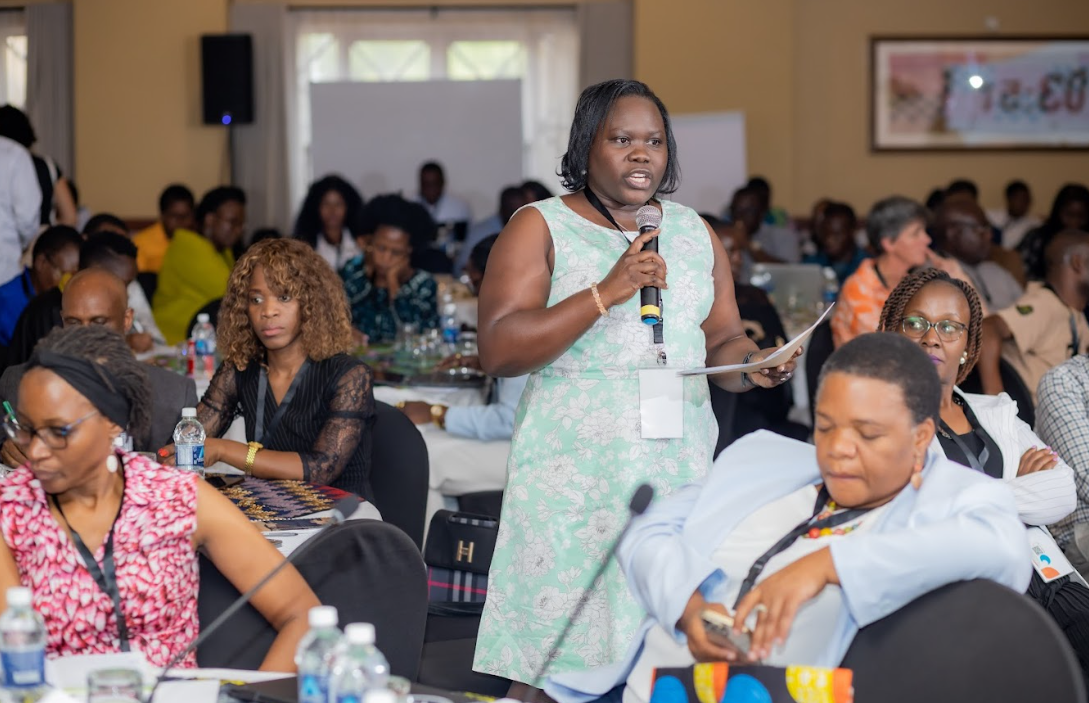
Transforming Funding Relationships in Development
In development discourse, few topics resonate more profoundly than the need to shift power dynamics in funding relationships. For those of us engaged in localization, resource access, and community empowerment, this is the foundation of meaningful and impactful development. True power shifts occur when communities move from being passive recipients to decision-makers in their development processes. The essence of transformative development lies in community ownership and agency.
Community-Led Development: A Paradigm Shift
One of the most compelling examples of shifting power comes from community-driven peace-building initiatives. Rather than executing pre-defined programs, communities themselves have taken the lead in setting priorities and addressing challenges. This shift ensures that development efforts are rooted in lived realities and local contexts, facilitating deeper engagement and long-term sustainability.
However, power is not merely a function of funding. It also resides in the ability to influence and drive local solutions. Achieving this requires funders to move beyond hierarchical dynamics and operate as equal partners. For instance, mutual due diligence in partnerships ensures relationships are built on respect and reciprocity rather than dependency.
The Role of Humility in Transforming Development
To genuinely shift power, development actors must adopt humility, recognizing that while they may provide resources, communities hold the expertise on their realities. Supporting community-led models that prioritize long-term growth over short-term wins is crucial. This means stepping back to let communities lead, make decisions, and innovate based on their unique contexts.
Uplifitng communities often has a ripple effect. When marginalized groups are facilitated to lead, this transforms their immediate surroundings and challenges and reshapes entrenched systems of inequality. Shifting power to communities creates space for authentic voices, local knowledge, and inclusive decision-making, which can inspire other communities to demand similar changes. As these shifts occur, they destabilize traditional power hierarchies, opening the door for broader systemic reform and more equitable resource distribution. This ripple effect helps to dismantle oppressive structures, building a world where power is shared, and everyone has a seat at the table.
Shifting power also demands confronting systemic injustices such as colonial legacies, gender inequities, and exclusionary funding models. Advocating for decolonization and restructuring funding to prioritize community-led initiatives is critical for dismantling entrenched inequalities.
Long-Term, Flexible Funding: A Game-Changer
The sustainability of community-based organizations (CBOs) and non-proft organizations depends heavily on access to long-term, flexible funding. Unfortunately, many organizations grapple with restrictive funding models that undermine their ability to adapt to real-time needs.
Challenges:
- Short-term grants constrain planning and execution of sustainable initiatives.
- Restricted funding limits flexibility, forcing organizations to prioritize donor-imposed agendas over community needs.
- Inflexible reporting requirements stifle innovation and responsiveness.
Building Resilient Funding Models
To reduce dependency on external aid, organizations are increasingly utilizing local resources and innovative models:
- Investing in assets: For instance, community groups acquiring land for sustainable farming have generated direct income and involved locals in economic activities.
- Diaspora funding: Initiatives like “Friends of KCDF” mobilize unrestricted funds from diaspora communities, offering autonomy and flexibility.
- Corporate partnerships: Framing projects as investments rather than expenses has enabled organizations to align with corporate strategic goals, fostering mutual benefits.
Participatory and Movement-Focused Approaches
Participatory funding models emphasize community ownership and equal power dynamics. For example, South African participatory grants co-designed with movement actors ensure initiatives are rooted in local priorities. Similarly, feminist accountability models favor dialogue and learning over rigid reporting, creating adaptive and responsive processes.
Overcoming Barriers to Power-Sharing
- Corruption and accountability: Transparent structures within recipient organizations can build trust and retain donor partnerships.
- Resistance to flexibility: Funders must adopt adaptable processes that respect local expertise and innovation.
- Political challenges: Protective funding mechanisms are essential for civil society organizations operating in restrictive environments.
Building Equitable Funding Systems
To genuinely shift power, we must create systems where communities not only participate but lead. This involves fostering partnerships based on trust, mutual accountability, and shared decision-making. By advocating for decolonized narratives and flexible funding, we can empower communities to take control of their destinies, ensuring lasting impact and equity in development.
As we move forward, let’s commit to being not just providers but partners, amplifying community voices and ensuring that development reflects the aspirations of those it serves. Only then can we achieve a transformative shift in power.



